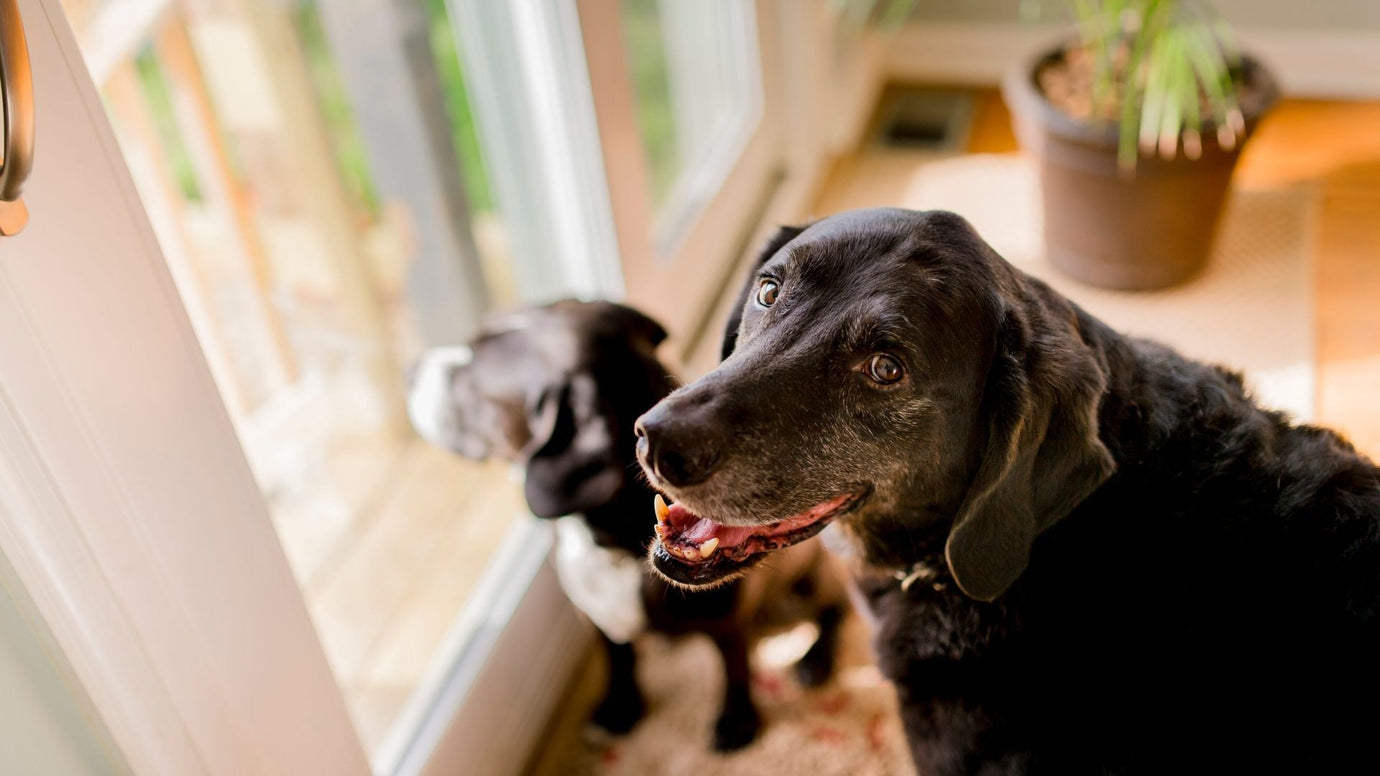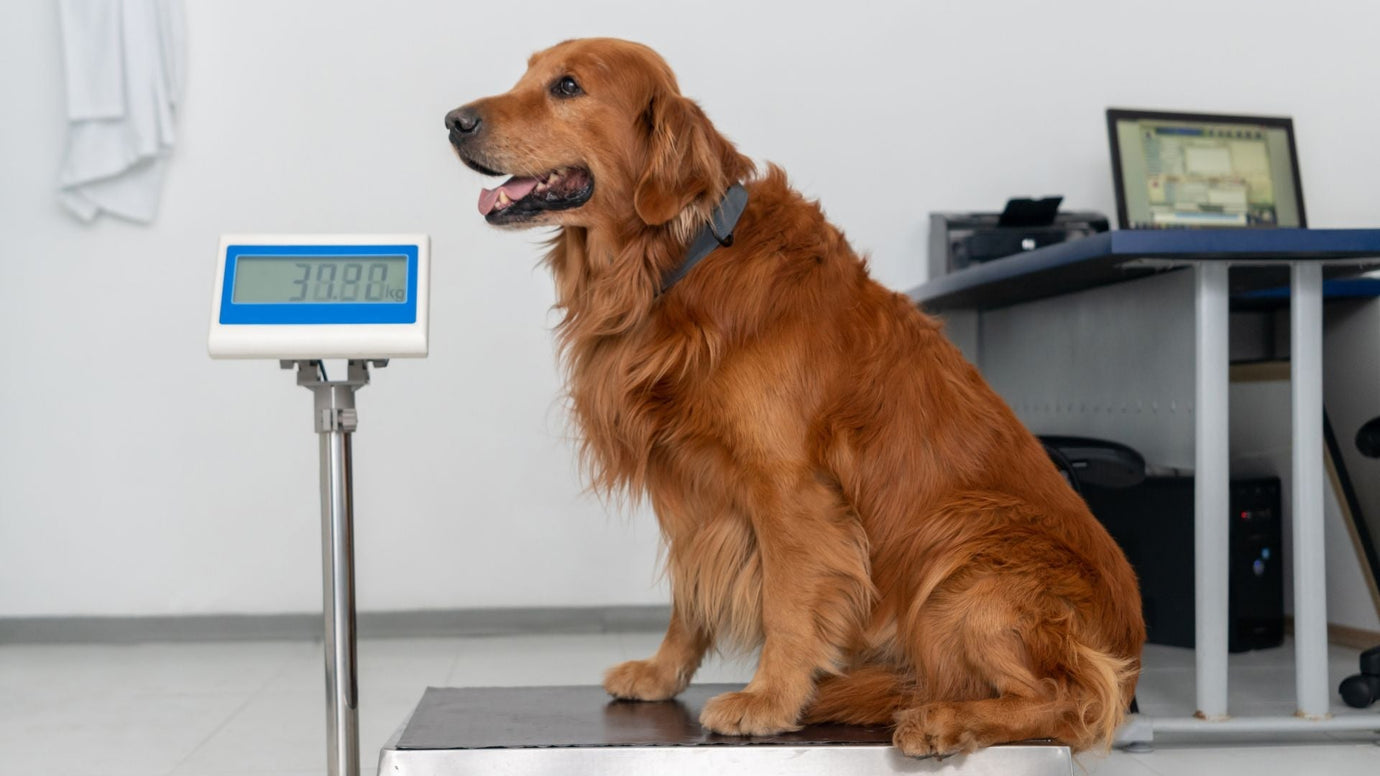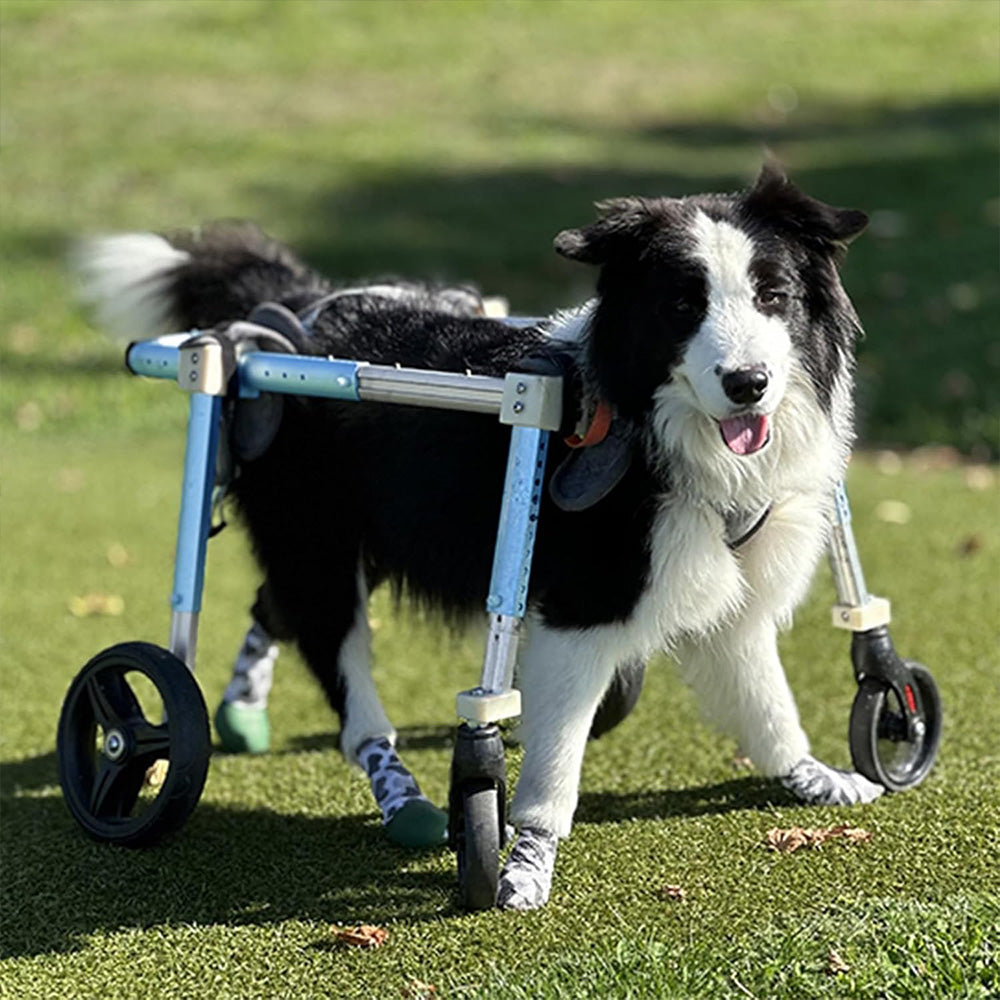Why Is My Dog Coughing? A Comprehensive Guide for Pet Parents
As a loving pet parent, hearing your dog cough can be a concerning sound. Whether it's a dry hack, a wet gurgle, or a distinctive honking noise, a dog coughing can signal a range of issues, from minor irritations to more serious health conditions. It's natural to wonder, "Why is my dog coughing?" and what you can do to help your furry friend.
This guide from Petstrot is designed to help you understand the various reasons behind your dog cough, recognize the different types of coughs, and know when it's time to seek veterinary attention. We'll delve into common culprits like kennel cough in dogs, discuss other potential causes, explore symptoms to watch for, and outline effective treatment and home care strategies. Our goal is to empower you with the knowledge to identify the problem early and ensure your dog receives the best possible care, helping them breathe easy and live a happy, healthy life.
Common Causes of Dog Coughing
Dog coughing can be a symptom of various underlying health issues, ranging from mild irritations to serious medical conditions. Understanding the potential causes is the first step in helping your dog. Here are some of the most common reasons why your dog is coughing:
1. Kennel Cough (Infectious Tracheobronchitis)
Kennel cough is one of the most well-known causes of a dog cough. It's a highly contagious respiratory disease that can be caused by various bacteria and viruses, most commonly Bordetella bronchiseptica. Dogs typically contract it in environments where they are in close contact with other dogs, such as kennels, dog parks, or grooming facilities. The classic symptom of kennel cough in dogs is a forceful, dry, hacking cough that often sounds like the dog has something stuck in its throat, sometimes followed by a gag or retch [8, 9]. This distinctive sound is often described as a "honking cough." You might also notice your dog coughing and gagging but nothing comes out. Kennel cough symptoms can include sneezing, a runny nose, and lethargy, but the cough is the most prominent sign. Understanding what is kennel cough is crucial for early detection and isolation to prevent its spread.
2. Collapsing Trachea
This condition is common in small and toy breeds like Yorkshire Terriers, Chihuahuas, and Pomeranians. The trachea (windpipe) is supported by rings of cartilage, and when these rings weaken and flatten, the trachea can collapse, especially during excitement or exercise. This leads to a characteristic dry, harsh, honking dog cough, which often worsens with activity or when pulling on a leash. You might notice your dog hacking cough or dog coughing and wheezing [3].
3. Heart Disease
Certain heart conditions, particularly congestive heart failure (CHF), can lead to a dog cough. When the heart isn't pumping efficiently, fluid can build up in the lungs, leading to pulmonary edema, which irritates the airways and triggers a cough. This cough is often soft, wet, and can worsen at night or when the dog is lying down. Other signs of heart disease might include lethargy, difficulty breathing, and reduced exercise tolerance. If your old dog coughing or a dog with a known heart murmur starts coughing, it's a significant concern [4].
4. Allergies
Just like humans, dogs can suffer from environmental allergies (pollen, dust mites, mold) or food allergies. Respiratory allergies can cause irritation in the airways, leading to a persistent dog dry cough, sneezing, and sometimes dog wheezing. Other allergy symptoms might include itchy skin, paw licking, and watery eyes.
5. Foreign Objects or Irritants
Dogs are curious creatures and can sometimes inhale foreign objects (like grass seeds, small toys, or food particles) or irritants (smoke, dust, strong perfumes) into their airways. This can cause a sudden, forceful dog cough as their body tries to expel the irritant. If your dog keeps coughing suddenly and intensely, especially after sniffing around, a foreign object could be the cause. You might also notice your dog gagging or trying to swallow repeatedly [3].
6. Pneumonia
Pneumonia is an inflammation of the lungs, often caused by bacterial, viral, or fungal infections. It can also result from aspiration (inhaling vomit or food). Dogs with pneumonia typically have a deep, wet, productive dog cough, often accompanied by fever, lethargy, difficulty breathing, and loss of appetite. This is a serious condition requiring immediate veterinary attention [4].
7. Canine Influenza (Dog Flu)
Canine influenza is a highly contagious respiratory infection caused by specific influenza viruses. Symptoms are similar to kennel cough but can be more severe, including a persistent dog cough, fever, nasal discharge, lethargy, and loss of appetite. It can lead to pneumonia in some cases [3].
8. Bronchitis
Chronic bronchitis is an inflammation of the bronchi (airways in the lungs) that persists for an extended period. It causes a persistent, harsh dog cough that can be dry or productive. It's more common in middle-aged to older dogs and can be exacerbated by irritants or allergies.
9. Reverse Sneezing
While not a true cough, dog reverse coughing and sneezing can often be mistaken for one. It's a common phenomenon, especially in small breeds, where the dog rapidly and forcefully inhales air through its nose, making a snorting or gagging sound. This is usually triggered by excitement, allergies, or irritants and typically resolves on its own within a minute or two. It's generally harmless, but if it's frequent or prolonged, consult your vet [3].
10. Heartworm Disease
Advanced heartworm disease can cause a chronic dog cough as the worms reside in the heart and pulmonary arteries, leading to inflammation and damage to the lungs. Other symptoms include lethargy, weight loss, and reduced exercise tolerance. Prevention is key for this serious condition [4].
Understanding these potential causes is vital. If you're asking yourself, "Why is my dog coughing?" and notice any concerning symptoms, a trip to the veterinarian is always the safest course of action.
Recognizing Dog Coughing Symptoms and When to Seek Veterinary Care
Observing your dog's cough closely can provide valuable clues about its underlying cause. The type, frequency, and accompanying symptoms can help you and your veterinarian determine the best course of action. Knowing when to seek professional help is crucial for your dog's health.
Types of Dog Coughs and What They Might Mean:
Dry, Hacking Cough (often with a honking sound): This is the classic sign of kennel cough. It sounds like your dog is trying to clear something from their throat. It can also be indicative of a collapsing trachea, especially in small breeds. If your dog keeps coughing this way, it's worth investigating [8, 9].
Wet, Gurgling, or Productive Cough: A wet cough often suggests fluid or mucus in the lungs or airways. This can be a symptom of pneumonia, bronchitis, or even congestive heart failure. You might notice your dog coughing up white foam or phlegm, which can be alarming [4].
Gagging or Retching Cough: A cough that ends with a gag or retch, sometimes producing foamy mucus, can be associated with kennel cough, an irritated throat, or a foreign object. If your dog coughing and gagging frequently, it needs attention [3].
Coughing at Night or When Lying Down: This can be a significant indicator of heart disease, as fluid tends to accumulate in the lungs when the dog is in a recumbent position. If your dog coughing at night is a new development, consult your vet [4].
Reverse Sneezing: As mentioned, this is not a true cough but can sound like a choking or snorting episode. It's usually short-lived and harmless, but if frequent, it's good to mention to your vet [3].
Accompanying Symptoms to Watch For:
Beyond the cough itself, pay attention to any other changes in your dog's health or behavior:
- Lethargy or Weakness: A decrease in energy levels or general weakness can indicate a more serious illness, such as pneumonia or heart disease.
- Loss of Appetite or Weight Loss: If your dog is not eating or is losing weight, it's a red flag that something significant is wrong.
- Difficulty Breathing (Dyspnea): Labored breathing, rapid breathing, or panting without exertion are serious signs that require immediate veterinary attention.
- Fever: An elevated body temperature can accompany infections like pneumonia or canine influenza.
- Nasal Discharge or Eye Discharge: These can be signs of respiratory infections.
- Blue or Purple Gums (Cyanosis): This is an emergency and indicates a severe lack of oxygen. Seek immediate veterinary care.
When to Seek Veterinary Care:
While some mild coughs might resolve on their own, it's always best to err on the side of caution when it comes to your dog's health. You should contact your veterinarian if:
- The cough is persistent or worsening: If your dog keeps coughing for more than a day or two, or if the cough becomes more severe, it's time for a vet visit.
- The cough is accompanied by other symptoms: Any cough combined with lethargy, loss of appetite, difficulty breathing, fever, or nasal discharge warrants immediate attention.
- Your dog is a puppy or an elderly dog: Puppies and senior dogs have weaker immune systems and are more susceptible to severe complications from respiratory illnesses.
- Your dog has a known underlying condition: If your dog has a history of heart disease, a collapsing trachea, or other chronic conditions, a new or worsening cough needs prompt evaluation.
- You suspect a foreign object: If your dog suddenly starts coughing violently and appears to be choking or in distress, seek emergency veterinary care immediately.
- Your dog is coughing up blood or white foam: This can indicate serious underlying issues and requires urgent medical attention.
Never attempt to self-medicate your dog with human cough suppressants or other drugs without consulting your veterinarian. Many human medications are toxic to dogs and can cause severe harm. Your vet will perform a thorough examination, which may include listening to their heart and lungs, X-rays, blood tests, or other diagnostics to accurately diagnose the cause of your dog cough and recommend the appropriate treatment.
Treatment and Home Care Options for Dog Coughing
The treatment for your dog coughing will depend entirely on the underlying cause, as diagnosed by your veterinarian. Once a diagnosis is made, your vet will outline a specific treatment plan, which may include medication, supportive care, and home management strategies.
Veterinary Treatments
- Antibiotics: If the cough is due to a bacterial infection, such as in many cases of kennel cough or bacterial pneumonia, antibiotics will be prescribed. It's crucial to complete the entire course of antibiotics, even if your dog's symptoms improve.
- Antivirals: For viral infections like canine influenza, antiviral medications may be used, though often supportive care is the primary approach.
- Cough Suppressants: For non-productive, irritating coughs that disrupt your dog's rest or quality of life, your vet might prescribe a cough medicine for dogs. These medications help to reduce the frequency and severity of the cough. However, cough suppressants are generally avoided if the cough is productive (bringing up mucus), as coughing helps clear the airways.
- Bronchodilators: These medications help to open up the airways, making it easier for your dog to breathe. They are often used for conditions like bronchitis or collapsing trachea.
- Anti-inflammatories: Steroids or other anti-inflammatory drugs may be used to reduce inflammation in the airways, particularly in cases of bronchitis, allergies, or collapsing trachea.
- Diuretics and Heart Medications: For coughs caused by heart disease, diuretics help remove excess fluid from the lungs, and heart medications improve cardiac function.
- Surgery: In some cases, such as severe collapsing trachea or removal of foreign objects, surgical intervention may be necessary.
Home Care and Supportive Measures
While veterinary treatment addresses the root cause, several home care strategies can help soothe your dog and make them more comfortable:
- Humidification: Using a humidifier or taking your dog into a steamy bathroom for 10-15 minutes a few times a day can help moisten airways and loosen mucus, making it easier to clear. This is particularly helpful for a dog dry cough.
- Rest: Ensure your dog gets plenty of rest. Limit strenuous exercise and avoid situations that might exacerbate their cough, such as excitement or pulling on a leash. A harness is often recommended over a collar for dogs with respiratory issues.
- Hydration: Encourage your dog to drink plenty of fresh water to help keep their throat moist and thin any mucus.
- Honey: A small amount of honey (e.g., 1/2 to 1 teaspoon for medium to large dogs, less for small dogs) can be a natural home remedy for dog cough and help soothe an irritated throat. Always consult your vet before giving any home remedies, especially if your dog has underlying health conditions like diabetes [14, 15].
- Avoid Irritants: Keep your home free from smoke, strong perfumes, aerosol sprays, and other airborne irritants that can trigger or worsen a cough.
- Elevated Feeding: For dogs with collapsing trachea or severe heart conditions, feeding and watering from elevated bowls can sometimes reduce coughing episodes.
- Isolation: If your dog has kennel cough, keep them isolated from other dogs to prevent the spread of the highly contagious infection. Understand how long is kennel cough contagious to ensure proper isolation periods.
- Monitor Symptoms: Continue to closely monitor your dog's symptoms and report any changes or worsening conditions to your veterinarian. Keep track of the frequency and type of cough.
Remember, these home care tips are supportive measures and should not replace professional veterinary care. Always follow your veterinarian's advice for treating your dog cough to ensure the best possible outcome for your beloved companion.
Conclusion
Hearing your dog coughing can be a worrying experience, but understanding the potential causes, recognizing the symptoms, and knowing when to seek veterinary care are crucial steps in ensuring your pet's well-being. From common issues like kennel cough in dogs to more serious conditions such as heart disease or pneumonia, a timely and accurate diagnosis is essential for effective treatment.
Never hesitate to consult your veterinarian if your dog keeps coughing or if you notice any accompanying symptoms. They are your best resource for providing a precise diagnosis and developing a tailored treatment plan. With proper medical care and supportive home management, many dogs can recover fully and return to their happy, healthy selves.
At Petstrot, we believe in empowering pet parents with knowledge and resources to provide the best care for their companions. By staying informed and proactive, you can help your dog overcome their cough and continue to enjoy a vibrant life. If you have concerns about your dog's health, always reach out to your trusted veterinary professional.








